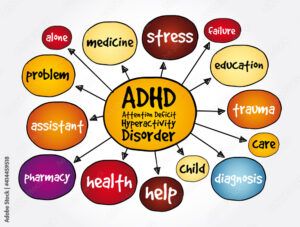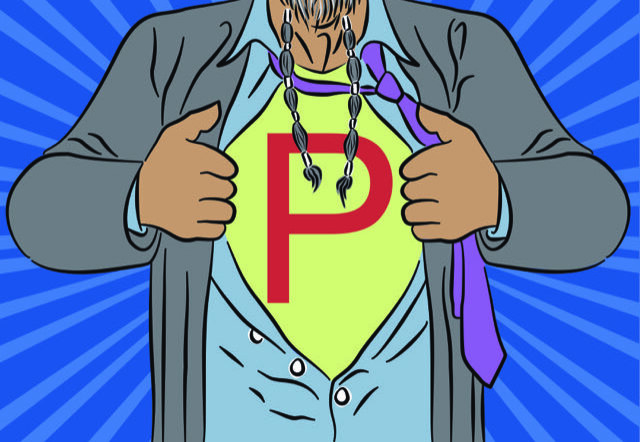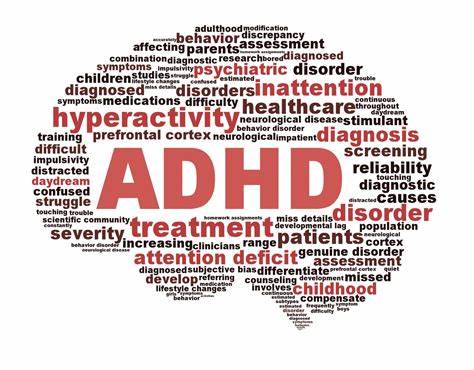I thought I’d type some prompts about ADHD into an AI tool and see what crops up. I think its quite good.
This is what it came up with.
ADHD, or Attention Deficit Hyperactivity Disorder, affects many individuals worldwide. It’s a neurodevelopmental disorder characterized by symptoms like inattention, hyperactivity, and impulsivity. Understanding ADHD is the first step to managing it effectively.
Recognizing the various types of ADHD is essential. There are primarily three types: Predominantly Inattentive Presentation, Predominantly Hyperactive-Impulsive Presentation, and Combined Presentation. Each type has unique challenges and requires different approaches for management.

Symptoms and diagnosis of ADHD can sometimes be tricky. Symptoms often include difficulty focusing, forgetfulness, excessive talking, restlessness, and impulsivity. Accurate diagnosis typically involves evaluations by healthcare professionals who consider medical history, behaviour assessments, and reports from family and teachers.
ADHD isn’t confined to any one group. It affects people of all ages, genders, and backgrounds. However, it’s commonly diagnosed in children, especially boys, often due to their more noticeable hyperactive behaviour. Despite stereotypes, girls and adults can also have ADHD, but their symptoms might look different.
Early diagnosis of ADHD can make a huge difference. It allows for timely intervention, helping to develop effective coping strategies and support systems. Living with ADHD is entirely manageable with the right knowledge and tools.
Navigating a Late Stage ADHD Diagnosis
Getting diagnosed with ADHD later in life presents unique challenges. Unlike early diagnosis in childhood, adults often have to unravel years of coping mechanisms and habits developed over time. This process can be both revealing and daunting.
Recognizing ADHD in adulthood can feel like a missing puzzle piece falling into place. Adults may have spent years struggling with symptoms without understanding why. Common signs include chronic lateness, disorganization, problems prioritizing tasks, and difficulties in relationships.
The impact on personal and professional life can be significant. Without a diagnosis, many adults may have faced academic struggles, career instability, and social issues. Understanding that these struggles have a root cause can be both a relief and a challenge. It’s important to approach these realizations with compassion and a willingness to seek support.

Strategies for managing a late diagnosis start with education. Learning about ADHD and how it affects your behaviour can empower you to make changes. Practical steps include establishing routines, breaking tasks into smaller chunks, and using tools like planners or apps to stay organized.
Success stories and personal narratives can be incredibly encouraging. Many individuals diagnosed later in life have gone on to thrive professionally and personally by embracing their ADHD. Sharing and hearing these stories fosters a sense of community and offers hope.
Mental Health and ADHD: Coping with Co-Existing Conditions
Living with ADHD often means living with co-existing mental health conditions like anxiety, depression, and unresolved trauma. These conditions can complicate the management of ADHD and make daily life more challenging.
ADHD and anxiety frequently go hand in hand. People with ADHD might feel overwhelmed by tasks and deadlines, leading to chronic worry. Techniques like mindfulness, deep-breathing exercises, and cognitive-behavioural therapy (CBT) can help reduce anxiety. Identifying triggers and establishing a calm environment also play vital roles.
Depression is another common co-existing condition. Feelings of inadequacy, frustration, and the constant effort to manage ADHD symptoms can contribute to depressive moods. It’s essential to recognize the signs of depression early and seek support. Therapy, medications, and lifestyle changes such as regular physical activity and sufficient sleep can be beneficial.

Trauma can complicate ADHD management. Unresolved trauma may amplify ADHD symptoms, making it hard to focus or causing heightened emotional reactions. Addressing trauma with a professional through trauma-informed therapy can be a game-changer. Building a support system of friends, family, or support groups can also help one feel less isolated.
Managing all these conditions often requires an integrative therapy approach. Combining medication, therapy, and lifestyle changes can create a balanced management plan. Integrative therapy can include traditional methods like CBT and newer techniques such as EMDR (Eye Movement Desensitization and Reprocessing) and Neurofeedback.
Support systems are crucial when dealing with multiple mental health conditions. Whether it’s friends, family, or support groups, having people who understand and provide support can make a world of difference. Joining ADHD communities, both online and offline, can offer practical advice and emotional support.
Living Well with ADHD: Practical Tips and Medical Management
Managing ADHD effectively involves a combination of practical strategies and medical interventions. These approaches can enhance quality of life and improve daily functioning.
Establishing daily living strategies is essential. Creating a structured routine helps minimize chaos and boosts productivity. Breaking tasks into smaller, manageable steps makes them less overwhelming. Tools like planners, apps, and reminder systems can aid organization.
Diet and exercise play significant roles in managing ADHD. A balanced diet rich in protein, fruits, and vegetables can help stabilize energy levels. Regular physical activity not only benefits physical health but also improves focus and mood. Activities like yoga, jogging, or even a simple walk can be very effective.
Medication and alternative treatments are crucial aspects of ADHD management. Stimulant medications like Adderall or Ritalin are often prescribed, but non-stimulant options also exist. It’s important to work closely with a healthcare provider to find the right medication or combination of treatments. Alternative therapies, such as mindfulness and neurofeedback, offer additional ways to manage symptoms.

This website will be about me, my shoes, my food, my music, my hobbies, my lyrics, my dog, my wife, my family, my hog, my friends, what I’m doing t earn money, my books, my walks, my, my podcasts, my thoughts, my dreams, my past, my present; my future my journal, because these [are me] and they are all always in my thoughts. So to use the vernacular of the north midland and Yorkshire – this is me (thoughts) and I feel I need to get them on paper (ok online) like my own journal (because that’s one thing the advice says to do for adhd)
Building a strong support network is fundamental. Connecting with others who understand ADHD, like support groups or communities, provides emotional backing and practical advice. Friends and family who are informed and supportive can also make a big difference in your journey.
Balancing ADHD with other medical issues requires careful management. Co-existing conditions like sleep disorders or chronic illnesses can complicate ADHD. Coordinated care, where healthcare providers work together, ensures a holistic approach to treatment. Self-advocacy is crucial in ensuring all health concerns are addressed.
Living with ADHD is a lifelong journey, but it’s one where you can thrive with the right strategies, support, and medical management. Embrace your unique strengths and continue seeking knowledge and support to enhance your quality of life.
<!– wp:social-links –><ul class=”wp-block-social-links”><!– wp:social-link {“url”:”https://gravatar.com/talemortallyb92d998cc8″,”service”:”gravatar”,”rel”:”me”} /–></ul><!– /wp:social-links –>


I truly appreciate how this article sheds light on the daily challenges of living with ADHD. The personal insights and practical tips shared here resonate with me on such a deep level. It’s refreshing to read something that not only validates the experience but also offers real strategies for managing life with ADHD. Thank you for creating such an honest and helpful resource!
Thank you so much for commenting so quickly. I have just received a diagnosis at 49 and still getting used to it